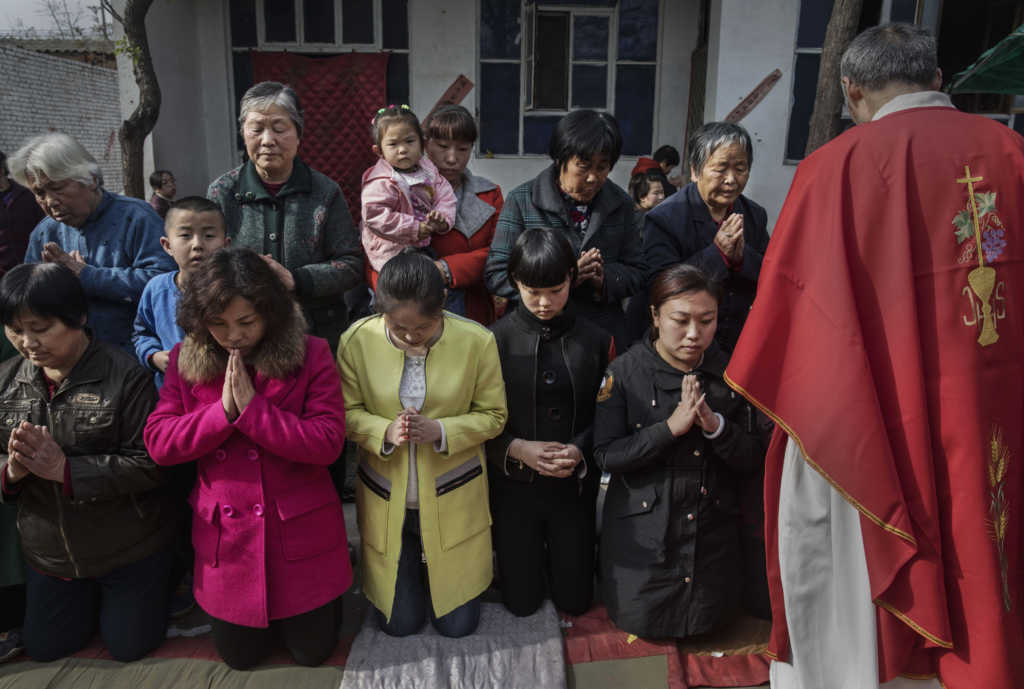The United States Commission on Religious Freedom has released its annual report, which features a damning analysis of many countries that continue to insist on violating their citizens’ freedom to religious expression.
Released on April 29, the 2019 report also contains a plethora of policy recommendations for the United States government on how it should approach the worst offenders.
Beyond providing crucial insights into the brutal tactics employed by various religion-suppressing governments, the report also provides “actionable policy recommendations for Congress and the Administration to help improve conditions abroad where people are being persecuted for their religion or belief,” said USCIRF Chair Tenzin Dorjee, according to a press release.
“Our goal is not only to call out the offenders, but to provide concrete actions for the U.S. government to take in working with these countries to get off our lists,” the statement noted.
The commission also highlighted 16 different “countries of particular concern” or “CPCs.”
The list includes Burma, China, Eritrea, Iran, North Korea, Pakistan, Saudi Arabia, Sudan, Tajikistan and Turkmenistan — all of which are governed by administrations who are determined to restrain freedom of worship in accordance with their own overarching religious belief systems or ideologies.
Pointing to the increase in Islamic fundamentalism and subtly referencing the case of Asia Bibi, Dorjee noted that no person should feel they are at risk for expressing their religious faith.
He also noted that governments who crack down on religious minorities must be held accountable by the United States — which is seen globally as a country that enshrines core constitutional values of religious freedom in society.
“The freedom to believe as one’s conscience dictates is a fundamental human right and vital to the security, stability and economic vitality of any state or region,” Dorjee said.
“In the past year, we have seen severe violations of religious freedom mount around the globe, from the imprisonment of individuals charged with blasphemy in several countries to the internment of over one million Uighur Muslims in China. We and others laboring in the realm of religious freedom must persevere in our efforts to make this right a reality for everyone, everywhere,” he declared.
China’s persecution of Christians under the spotlight
The report classifies China as a “Tier 1” CPC — a country that has taken extreme measures to regulate and oppress religious freedoms. One church in particular, Early Rain Covenant Church, got a special mention in the official report as being heavily persecuted by governing authorities.
“The government also raided or closed down hundreds of Protestant house churches, including Zion Church, Rongguili Church, and Early Rain Covenant Church,” the report explained.
Early Rain’s senior pastor, Wang Yi, remains behind bars after speaking out against President Xi Jinping’s brutal regime.
Citing China’s own policies, the report highlighted the contradictory nature of the country’s policy towards those belonging to a particular faith.
“Article 36 of China’s constitution grants citizens ‘freedom of religious belief’ and directs the government to protect ‘normal religious activities,'” the report noted, before pointing out that this freedom “is limited by the requirement that religious activities cannot ‘disrupt public order, impair the health of citizens or interfere with the educational system.'”
Indeed, as part of President Jinping’s quest to consolidate power, government authorities have continued to intensely target human rights defenders and religious freedom advocates.
U.S. must use diplomatic channels to challenge China’s religious persecution
With the aim of alleviating the suffering of religious minorities, and as part of a long list of diplomatic recommendations to the U.S. government, the report urged the Trump administration to “integrate religious freedom and related human rights diplomacy into ongoing trade negotiations.”
The commissioners also called on Congress to “support legislation that would increase restrictions on the export to China from the United States of advanced technology—including surveillance and biometric equipment,” noting that these technological developments have “enhanced the Chinese government’s capacity to monitor and harass religious and ethnic communities; and raise the profile of religious freedom in the U.S.-China relationship.”
To view the full report, click here.



